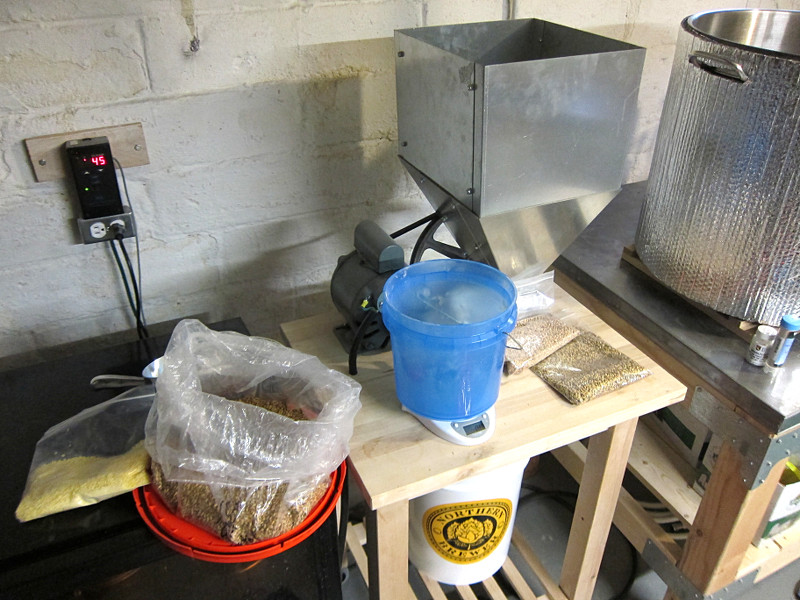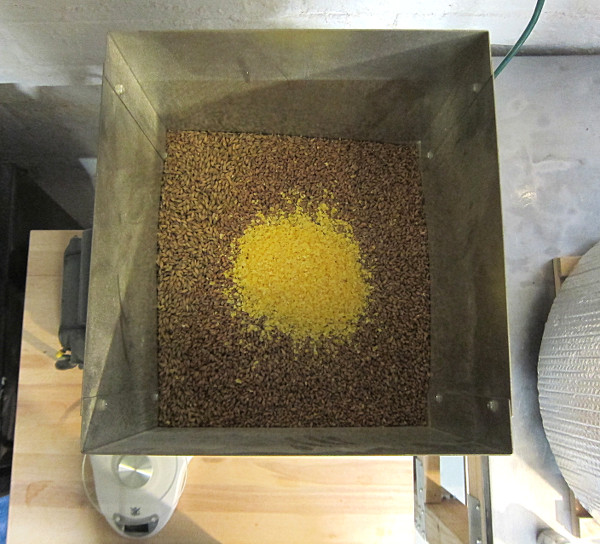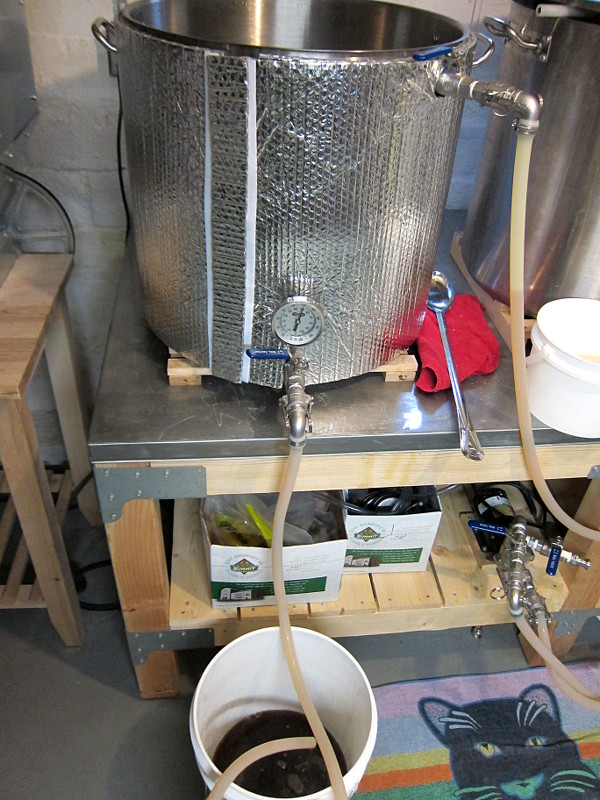We brewed this IPA the first time back in November and we didn’t Brew It Right™. Time to fix that.
Last Time
November’s grain bill was too sweet and wasn’t balanced by the hops. When racking to secondary and tasting the hydrometer sample, we said:
Wow, what an awful taste. First off, too sweet, and the aroma hops (mostly Cluster) just don’t work with the sweetness of the malt. Maybe it will get better with time, but we certainly know what we won’t do in the future: pair a large amount of Golden Promise with late-addition Cluster.
The beer got better with age, but was never particularly good. This time, we’re making some changes:
- Maris Otter instead Golden Promise – GP is a sweeter malt, but we’d like complexity without the sweetness, thus the MO. We’re sure GP is appropriate in some beers, just not in this one.
- No Cluster – not clean enough of a finishing hop, at least in the large quantities used in IPAs. While we know of some very popular lighter beers that use late-addition Cluster, it’s just not right for this IPA. This time we’ll go with more traditional finishing hops.
- Add some wheat malt – makes the beer a little lighter and gives better head. Plus we’ve got some we need to use.
The Brew


This time we decided to try batch sparging in an attempt to save time during the brew day. We usually fly-sparge on our system, and that takes anywhere from 60 to 90 minutes, so we were looking to speed things up and make the brew day a bit shorter.

In a typical batch sparge, you drain the entire mash tun for the first batch. Then you add more hot water, let it sit for about 15 or 20 minutes, and drain again for the second batch. The combination of first and second batches makes your final boil volume.
Our first batch clocked in at 5.25 gallons and 13.75 Plato. The second batch was 3.25 gallons at 6.5 Plato. With these batches combined, we began the boil with 8.5 gallons at 11 Plato (1.042 SG). This was right on the target of a final 5.5 gallons at 1.066 SG, but since our boil-off rate is about 2 gallons per hour, we needed to boil off a gallon of wort.
30 minutes later we added the first bittering hops and an hour after that, our boil was done. 5 gallons went into the fermenter at 1.066 SG, yielding about 70% efficiency.
Did Batch Sparging save time?
No, it did not. Two things prevented batch sparging from saving time over fly-sparging:
- more wort, lower gravity: fly sparging seems to result in a more concentrated wort, which means we can start the boil right away. Batch sparging seems to yield more wort at a lower gravity, which means we have to spend 30 – 40 minutes boiling off water before we can start adding hops.
- rest between batches: batch sparging guides usually say to wait between batches and let the water leach more sugars out of the grain. That takes an additional 20 minutes.
So besides the time spent draining the mash tun (15 minutes) you add another hour for resting and boil-off, and batch sparging doesn’t save us any time. But it was a bit easier, and we didn’t have to monitor the gravity near the end of the sparge to avoid tannin extraction.
Into the Secondary
We’re somewhat slow writing up each brew, so this IPA is already being dry-hopped in secondary. You see, we’ve got a friendly competition coming up where this IPA will be pitted against 15 commercial hoppy beers, so we’re under the gun. Final gravity into secondary was 1.016 SG for an ABV of 6.5%, which was right on target. We’d planned to dry-hop with Willamette and Ahtanum, but after trying valiantly to drink an Ahtanum dry-hopped Kolsch at a local brewery, we sprinted away from this combination. Luckily our freezer had a half-ounce each of Simcoe and Amarillo, both excellent IPA dry-hops.
When it’s done, we’ll do a proper tasting and give you all the details.
Comments and Questions